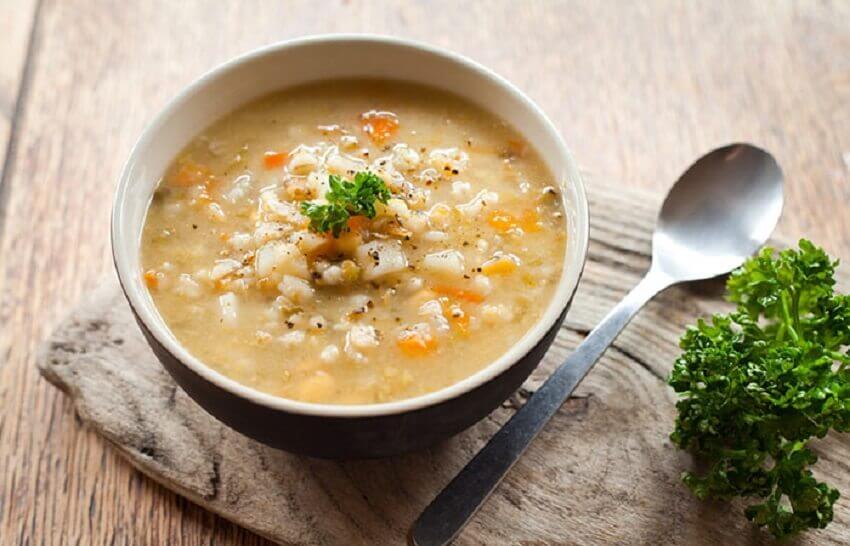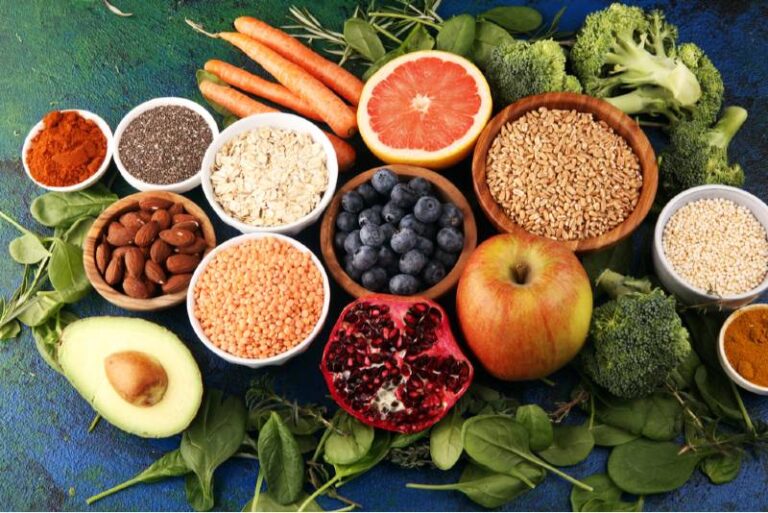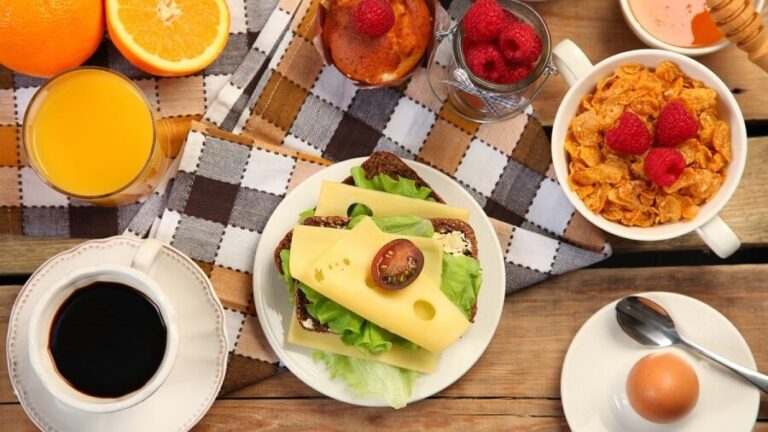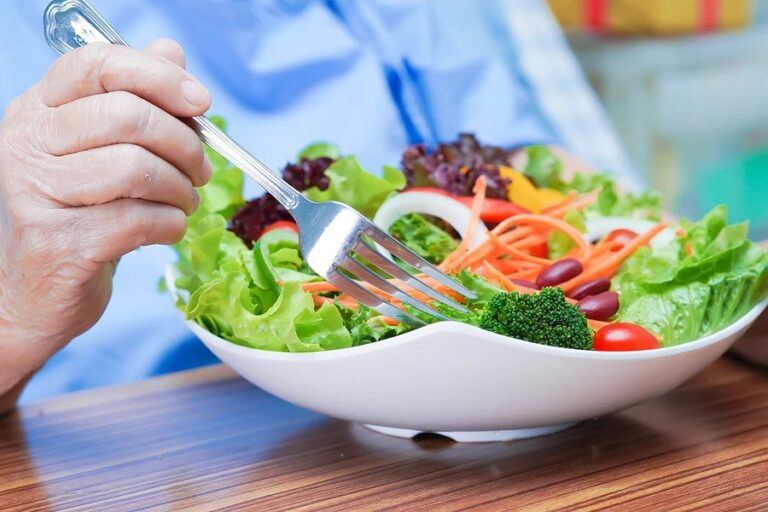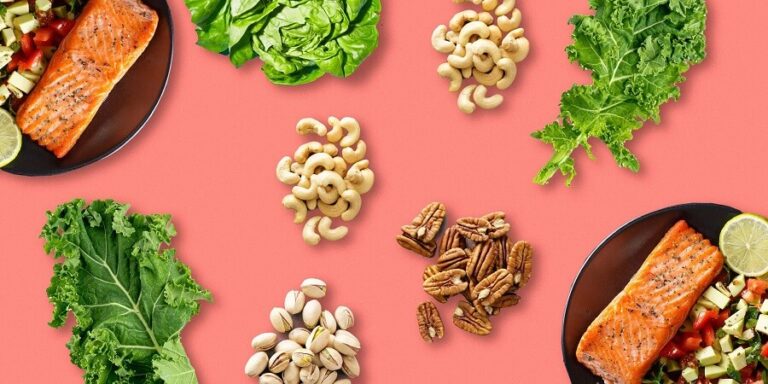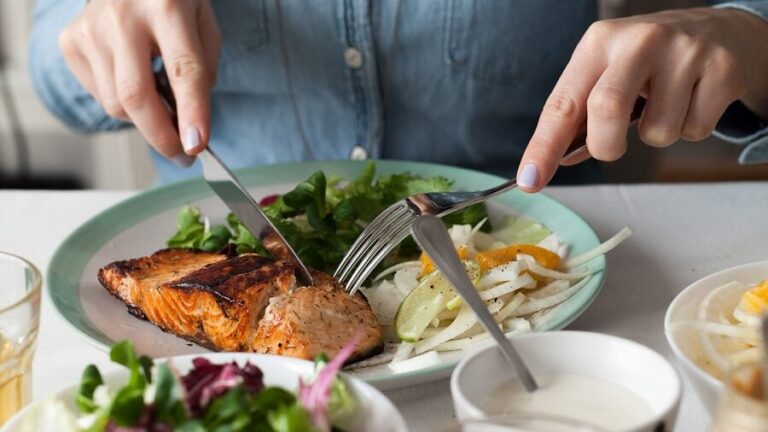Gastritis is one of the most common gastrointestinal diseases. It occurs when there is inflammation in the stomach or esophagus.
Mild or severe symptoms may appear depending on the severity and type of gastritis. If it is maintained long-term (chronic gastritis), it can cause ulcers in the stomach.
This article looks at the forbidden and allowed foods with gastritis and tips to alleviate your symptoms.
What is gastritis?
Gastritis or gastroenteritis is an inflammation of the stomach or esophagus lining.
The leading cause of gastritis is infections by pathogenic microorganisms. (2)
Although there may be other causes of gastritis, such as genetic predisposition, unhealthy eating, or bad habits, smoking or an excess of caffeine increases the probability of developing this disease.
When a person has gastritis, the production of digestive juices is impaired. The stomach begins to digest not only food but itself.
Correctly selecting foods in the diet – allowed and prohibited, is essential to alleviate gastritis symptoms.
Gastritis – Forbidden Foods
It is essential to know that there is no general list of prohibited foods during gastritis; it varies from case to case, depending on the cause of the disease and the symptoms.
However, any diet for gastritis implies a maximum restriction of sweet foods, excess fat (fried foods), alcohol, and ultra-processed products.
Smoking, especially on an empty stomach, increases the acidity of gastric juice. So people with gastritis should not smoke at least until the first meal. Alcohol also significantly alters the balance in the stomach, which leads to the appearance of micro-burns and lesions on the stomach walls.
The prohibited foods with gastritis are:
- Sweet cookies
- Bakery products
- Café
- Chocolates
- Hot spices
- Fried food
- Sausages
- Preserves
- Tomato sauces
- Bacon
- Milk cream
- Lemon juice
- Red pepper
- Alcohol
Gastritis – Foods allowed
Some medications help minimize or alleviate gastritis symptoms; however, for the successful treatment and recovery of this disease, it is essential; not only to take tablets but also to make a correct selection of food.
A diet for gastritis must be differentiated according to the cause. The allowed foods differ when a person has an increase or decrease in the acidity of gastric juice.
In the first case, it is recommended to abandon products that stimulate the production of acidic pH in the stomach. While in the second case, these products will be the main components of the diet.
Fiber foods are recommended when symptoms have passed the infection. In cases of gastritis, the cooking method is also essential. You should always eat food either boiled or baked. Finally, probiotics are necessary to regenerate the natural microflora at the end of an episode of gastritis.
Establishing a general list of foods for gastritis is not the right thing to do. However, as a general rule, the foods allowed in cases of gastritis are:
- Cereals ( oatmeal, rice, spelled, millet, bulgur )
- Pseudocereals ( buckwheat, quinoa, amaranth )
- Lean meats
- Vegetable proteins (seitan, soy)
- Healthy fats without frying (olive oil, canola, etc.)
- Non-acid vegetables (zucchini, potato, sweet potato)
Other food tips
Gastritis is a mild disease. Its symptoms pass after resting, sleeping, and eating a proper diet. Here are five eating tips for gastritis:
- Avoid any sour fruits and vegetables
The stomach can become irritated not only by eating onions and garlic. But also by eating citrus fruits: oranges, lemons, grapefruits, peppers, radishes, and even fresh tomatoes. All these products are prohibited in the diet since they stimulate the excessive secretion of gastric acid.
- Do not eat bread, cakes, and sweets.
Excess sugar increases the acidity of gastric juice and causes gas formation. In addition, industrial sweets, cookies, waffles, etc., contain preservatives that can be harsh on the stomach. All of these foods should be avoided to alleviate gastritis symptoms.
- Eliminate preserves, sausages, and semi-prepared foods
The problem with half-cooked foods is their high content of preservatives and trans fats. Preservatives are used to extend shelf life and prevent bacteria from multiplying. Many of them are acidic. In cases of gastritis, sausages and sausages must be eliminated. As well as industrial sauces such as mayonnaise and ketchup.
- Fried foods are forbidden from the diet.
To alleviate gastritis symptoms, you must start with healthy nutrition. The exclusion of the diet of fried foods in fat or oil is essential. Replace them with lean meats cooked in the oven.
- Yogurt with probiotics is essential after symptoms.
In gastritis, all microorganisms die, even the good ones. The consumption of yogurt helps to regenerate intestinal flora. If you are lactose intolerant, you can try other fermented beverages.
Gastritis symptoms
The term gastritis encompasses a multifaceted series of symptoms. Current medicine distinguishes several types of gastritis, which can be classified according to the cause, and the degree of acidity, among others. Every kind of gastroenteritis has different symptoms and characteristics.
To determine that it is gastritis, a medical test or FGS must be performed; the study determines the health of the walls of the esophagus and stomach. The most common gastritis symptoms are:
- Unpleasant sensations in the stomach
- Swelling
- Feeling of heaviness
- Belching
- Nausea or burning in the pit of the stomach
- Diarrhea and vomiting
ABSTRACT
- Gastritis is one of the most common gastrointestinal diseases.
- The main symptoms of gastritis are: bloating, abdominal pain, burning in the pit of the stomach, nausea, and vomiting.
- Recovery from gastritis takes 2 to 3 days.
- Although generalizing between prohibited and permitted foods is not correct, since the diet depends on each case, it can be said that it is essential to choose certain food groups.
- The rejection of fried foods, coffee, not smoking, and including foods that do not modify the pH of the stomach, such as cereals, is essential.

